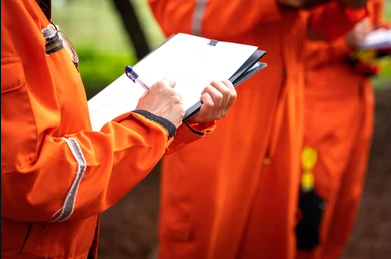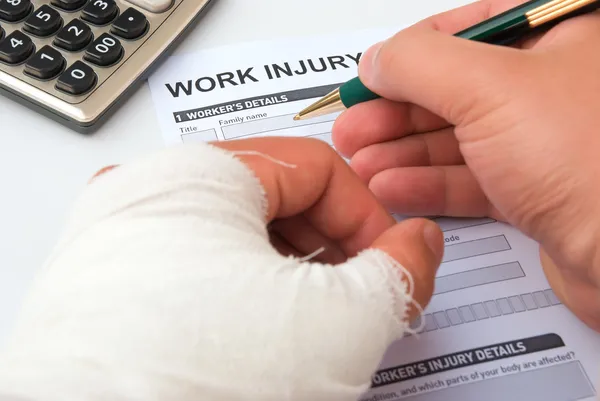What to Do If You’re Injured: Construction Site Accident in Texas
Construction sites rank among the most hazardous workplaces in the country, with accidents occurring frequently. Each year, many construction workers sustain serious injuries, and tragically, some even lose their lives. According to the latest OSHA statistics, construction-related fatalities make up a staggering one in five workplace deaths nationwide.
If you’re injured in a construction site accident in Texas, take these steps immediately to protect your health and rights:
#1 Seek Immediate Medical Attention
Your health is your most important concern after a construction site accident. It’s essential to get medical attention immediately, even if you believe your injuries are minor. Some conditions, like internal injuries or concussions, may not show obvious symptoms right away but can become serious if left untreated. Additionally, keeping thorough medical records is crucial for any legal or insurance claims you may need to pursue.

- Get Emergency Care If Needed: If your injuries are severe or life-threatening, don’t hesitate—call 911 or have someone take you to the emergency room immediately. Quick medical intervention can make a significant difference in your recovery.
- Visit a Doctor Even for Minor Injuries: Even if your injuries seem minor, seeing a doctor as soon as possible is essential. Some injuries, like internal bleeding, concussions, or soft tissue damage, might not show symptoms right away but can become more serious over time.
- Keep Detailed Medical Records: Medical documentation is crucial for any legal or insurance claims you might pursue. Ensure that all your medical visits, treatments, prescriptions, and diagnoses are well-documented. This will serve as evidence of your injuries and the impact they have on your life.
- Adhere to Your Doctor’s Treatment Plan: Follow your doctor’s advice and complete any recommended treatments or therapies. This not only aids in your recovery but also shows that you are taking the necessary steps to heal, which is important if you seek compensation later on.
- Monitor Your Symptoms: Keep track of any changes in your condition, no matter how small they seem. If new symptoms arise or your injuries worsen, seek medical attention immediately. Documenting these developments can be vital in demonstrating the ongoing effects of your injuries.
#2 Report the Accident

- Notify Your Supervisor Immediately: As soon as the accident occurs, inform your supervisor or employer without delay. This prompt notification not only fulfills your legal obligation but also helps initiate the necessary steps to address your injuries and prevent further accidents.
- Provide a Detailed Account: When reporting the accident, be as detailed as possible. Clearly describe how the accident happened, including the location, time, and circumstances leading up to it. Mention any equipment or materials involved, as well as any hazards or unsafe conditions that contributed to the incident.
- Document the Nature of Your Injuries: Clearly explain the injuries you sustained in the accident. Describe the type of injury, the affected areas of your body, and the severity of your condition. This information will be important for medical treatment and any claims you may need to file.
- Identify Witnesses: If there were any witnesses to the accident, be sure to include their names and contact information in your report. Witnesses can provide valuable statements that corroborate your account of the accident, which can be crucial in establishing liability.
- Request a Written Report: Ask your supervisor or employer to provide a written report of the incident. This document should include all the details you provided and be signed by both you and your employer. Keep a copy for your records as this serves as official documentation of the accident.
- Submit the Report to the Appropriate Authorities: In some cases, especially for severe injuries, it may be necessary to report the accident to state or federal agencies, such as OSHA (Occupational Safety and Health Administration). Ensure that your employer submits the necessary reports and keep copies of any documents sent to regulatory bodies.
- Monitor the Follow-Up Actions: After reporting the accident, monitor how your employer handles the situation. Ensure that any hazardous conditions are addressed to prevent future accidents. Also, keep track of how your employer manages your case, including any communications with insurance companies or legal entities.
- Be Aware of Deadlines: Texas law requires that workplace injuries be reported within a certain timeframe to qualify for workers’ compensation. Make sure you adhere to these deadlines to preserve your right to compensation
#3 Document the Scene and Injuries

- Take Photos of the Accident Site: As soon as you can, use your phone or camera to capture detailed images of the accident scene. Focus on the specific location where the incident occurred, and include wide-angle shots to provide context. Photograph any hazardous conditions, such as slippery surfaces, broken equipment, or missing safety guards, that may have contributed to the accident.
- Capture Images of Your Injuries: Document your injuries as soon as possible after the accident. Take clear, close-up photos of all visible injuries, such as cuts, bruises, burns, or swelling. Continue to photograph your injuries over time to show any changes or worsening conditions. These images can serve as powerful evidence of the severity of your injuries and the impact on your daily life.
- Document Equipment and Tools Involved: If any machinery, tools, or equipment played a role in the accident, make sure to photograph or video them. Focus on any defects, malfunctions, or improper use that may have contributed to the incident. This documentation can help establish whether faulty equipment or safety violations were factors in the accident.
- Preserve Physical Evidence: If possible, keep any physical evidence related to the accident. This could include damaged safety gear, broken tools, or clothing that was worn during the incident. Physical evidence can be compelling in demonstrating the severity of the accident and the circumstances that led to it.
- Secure the Evidence Safely: Store all the evidence you collect in a secure and organized manner. Back up photos and videos to multiple locations, such as cloud storage and an external hard drive, to ensure they are not lost. Keep all written and physical evidence in a safe place, where it won’t be damaged or tampered with.
- Provide Copies to Your Attorney: If you decide to consult with a construction accident attorney, provide them with copies of all the evidence you’ve gathered. This will help them build a strong case on your behalf and give them the tools needed to pursue the best possible outcome.
#4 Understand Your Rights and Options
Eligibility for Workers’ Compensation

-
- Coverage Basics: Texas law provides workers’ compensation benefits to employees who are injured on the job. This no-fault insurance system covers medical expenses, a portion of lost wages, and, in some cases, disability benefits.
- Medical Expenses: Workers’ compensation will cover all necessary medical treatments related to your injury, including doctor visits, hospital stays, medications, physical therapy, and any required surgeries.
- Income Benefits: If your injury prevents you from working, workers’ compensation can provide income benefits to partially replace your lost wages. The amount typically depends on your average weekly wage and the severity of your disability.
- Disability Benefits: If your injury results in a permanent disability, you may be entitled to additional compensation. This can include benefits for permanent partial disability (PPD) or permanent total disability (PTD), depending on your situation.
- Death Benefits: In the tragic event that a construction worker dies as a result of a workplace accident, workers’ compensation provides death benefits to the worker’s dependents, including coverage for funeral expenses.
Third-Party Claims
-
- When a Third Party Is Liable: Workers’ compensation benefits generally prevent you from suing your employer directly for a workplace injury. However, if a third party—such as a subcontractor, equipment manufacturer, or property owner—was responsible for the accident, you may have grounds to file a personal injury lawsuit against them.
- Potential Compensation in a Lawsuit: A personal injury lawsuit can offer broader compensation than workers’ compensation. You may be able to recover damages for pain and suffering, full lost wages (not just the partial amount covered by workers’ compensation), future earning capacity, and in some cases, punitive damages if the third party’s conduct was particularly reckless or negligent.
- Examples of Third-Party Liability: Common scenarios where a third-party claim might arise include accidents caused by defective equipment, negligence by a subcontractor, unsafe premises, or improper safety protocols enforced by a party other than your employer.
Dual Claims
-
- Filing Both Workers’ Compensation and a Lawsuit: In some cases, you may be eligible to pursue both a workers’ compensation claim and a third-party personal injury lawsuit simultaneously. This dual approach allows you to receive workers’ compensation benefits while also seeking additional damages from the responsible third party.
- Impact on Compensation: If you receive a settlement or judgment from a third-party lawsuit, the workers’ compensation insurer may have a lien on part of the recovery. This means they can claim reimbursement for the benefits they paid out, so it’s essential to consult with an attorney to understand how this could affect your overall compensation.
Understanding Employer Liability
-
- Employer’s Responsibilities: While workers’ compensation typically shields employers from being sued, there are exceptions. If your employer was grossly negligent or intentionally caused harm, you might have the right to pursue a direct lawsuit against them.
- Non-Subscriber Employers: Some Texas employers choose not to carry workers’ compensation insurance. If your employer is a “non-subscriber,” they can be sued directly for workplace injuries, and they lose some common legal defenses, making it easier to hold them accountable for your damages.
Importance of Legal Representation

-
- Navigating Complex Legal Processes: Understanding your rights and the options available can be complicated, especially when dealing with the aftermath of a serious injury. An experienced construction accident attorney can help you navigate these complexities, ensuring that you pursue the right course of action for your situation.
- Maximizing Your Compensation: An attorney can evaluate your case, identify all potential sources of compensation, and advocate on your behalf to maximize the amount you recover. They can also handle negotiations with insurance companies, file necessary legal claims, and represent you in court if needed.
Deadlines and Statutes of Limitations
-
- Workers’ Compensation Deadlines: In Texas, you typically have 30 days from the date of the accident to report your injury to your employer and one year to file a workers’ compensation claim. Missing these deadlines can jeopardize your ability to receive benefits.
- Personal Injury Statute of Limitations: For third-party claims, Texas law generally allows two years from the date of the accident to file a personal injury lawsuit. It’s crucial to act within this timeframe to preserve your legal rights.

